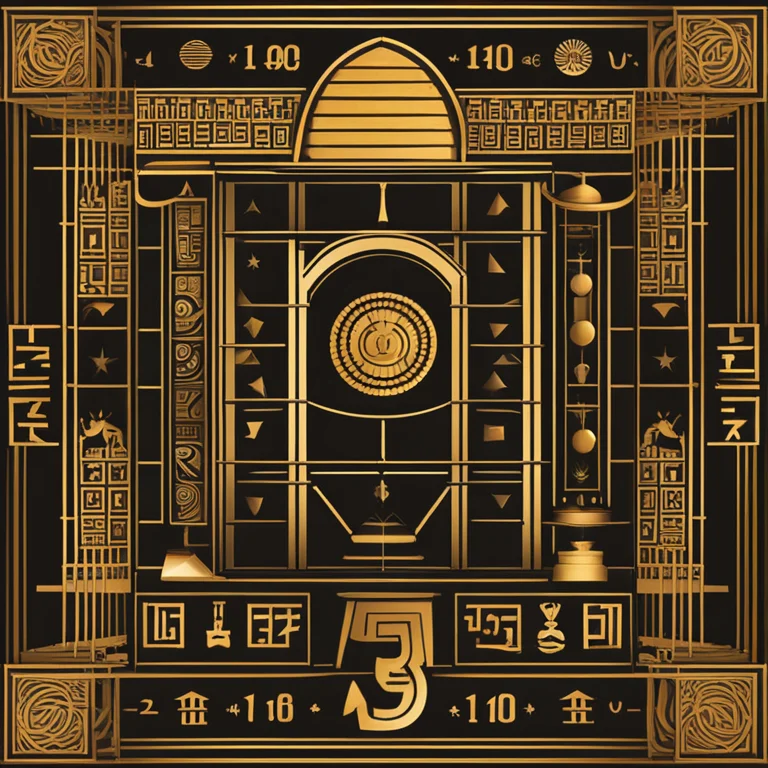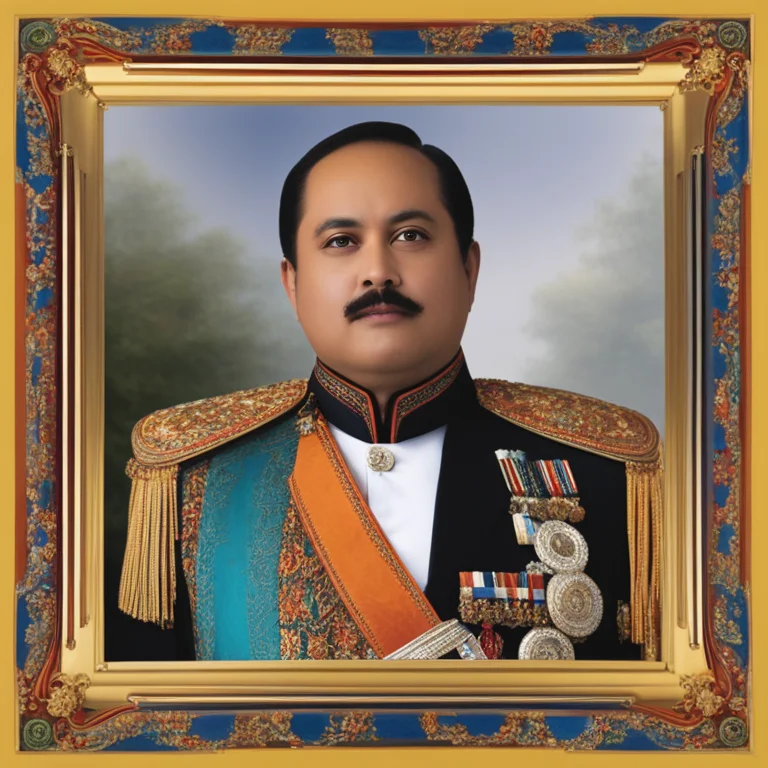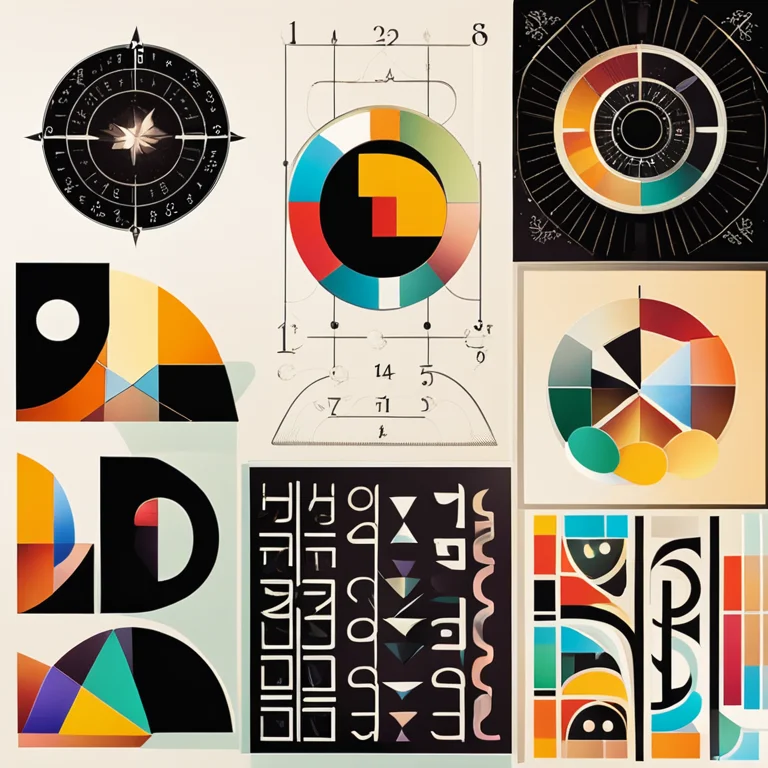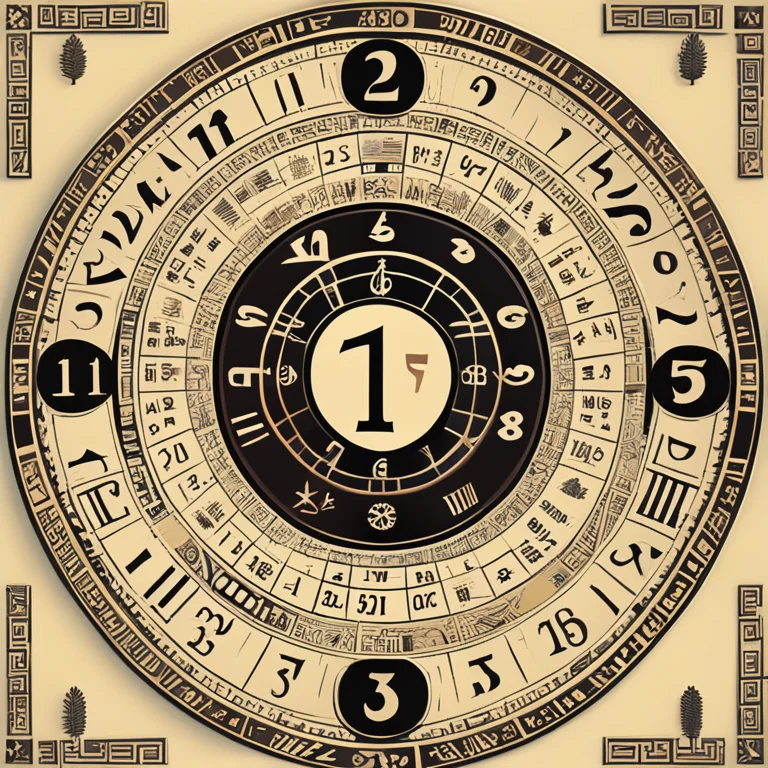
The Origins of Numerology: Tracing Its Inception
Delve into the history of numerology to understand its foundations and key contributors to this mystical art form. Learn about the ancient practice that connects numbers to the universe's secrets.
article by Sofia Ferguson
Introducing Numerology
Numerology is often viewed as a mystical system that marries numbers with the spiritual and physical world, offering insight into a person's character, destiny, and life events. Far from being a modern invention, its roots are ancient, with practices found across various cultures. Despite the common misconception that numerology is a product of a single inventor, it is, in fact, a culmination of contributions from several civilizations and scholars over millennia.

Ancient Civilizations and Numbers
Historically, many ancient societies held the belief that numbers held sacred and mystical significance. The Babylonians, for instance, used numerology over 3000 years ago, and their understanding contributed significantly to later astrological practices. The Ancient Egyptians recognized the power of numbers in their construction of pyramids and their mythology. However, numerologists often cite the Greek philosopher Pythagoras, from the 6th century BCE, as a pivotal figure in the development of numerological concepts.

Pythagoras: The Father of Numerology?
While Pythagoras did not invent numerology itself, his philosophical and mathematical teachings greatly influenced its structure. He believed in the fundamental resonance of numbers and the universe. The Pythagorean system, which assigns numerical values to letters in the Greek alphabet, laid the groundwork for many principles used in modern Western numerology. Pythagoras’ school of thought suggested that by understanding the vibrational properties of numbers, one could gain insights into the cosmos and the individual soul.

Evolution through the Ages
Numerology has evolved through contributions from various scholars throughout history. During the Middle Ages and the Renaissance, scholars like Johannes Kepler pursued the relationship between planetary movements, geometry, and numerical patterns. In the Eastern traditions, systems such as Chinese numerology have also thrived, with the I Ching and the Lo Shu square playing critical roles. Each culture added its nuances and interpretations, thereby enriching the tapestry of numerological knowledge.

Modern Numerology's Growth
In modern times, numerology has seen a renaissance with the works of figures like L. Dow Balliett, who published literature linking numerology with music, and Dr. Julian Stenton, who is actually credited with coining the term "numerology." The 20th and 21st centuries have witnessed a surge in interest, as reflected by an abundance of books, courses, and online content. Numerology's applications have expanded into areas such as naming children, choosing business names, and understanding relationship dynamics.
The Contemporary Scene
As we move forward, numerology adapts and integrates with technology and new understandings of the world. Current numerological practices reflect a fusion of historical knowledge and contemporary context, ensuring its relevance. The internet has provided a platform for a global exchange of numerological ideas, and software advancements have made complex calculations instantaneous, allowing for the personalization of readings and broader accessibility.
Conclusion: A Collective Invention
If we attempt to credit one individual with the invention of numerology, we diminish the rich, collective history of this art. The true spirit of numerology lies in its universal appeal and the synthesis of wisdom from countless contributors. Understanding its vast heritage gives us greater appreciation for its place in human culture and its continued evolution.
Published: 1/11/2024
Modified: 1/11/2024
More predictions
Come back here soon to learn more about yourself and your future


Compute Your Numerology Life Path Number
Learn how to compute your life path number in numerology to gain insight into your life's purpose and potential trajectories.


Between Virgo's & Libra's Compatibility
Discover the dynamic relationship between Virgo and Libra in love, friendship, and work.


The Art of Compatibility Synastry
Discover the intricacies of relationship dynamics through the lens of compatibility synastry in astrological chart comparison.